Last updated on April 5th, 2025
A boiler losing pressure regularly means you have a problem with the boiler or the central heating system. The most common reason is a leak, which could be anywhere on the system. I have been a full-time heating engineer for over a decade, and a boiler losing pressure is normally easy to fix.
Causes for pressure dropping
Bleeding radiators will cause your boiler pressure to drop, but if it keeps dropping, there is something else causing it.
Most likely causes:
- A Leak
- Expansion vessel has lost its air
- Pressure relief valve passing water
- Filling loop letting by
A leak
The most common problem I get called out to on a boiler that keeps losing pressure is a leak. This could be anywhere; a radiator, a radiator pipe under the floor, the boiler, literally anywhere on the heating system.
The most common place for a heating system leak is on a radiator valve. Check them all for any signs of water. You can often fix a leaking radiator valve by tightening a nut on the valve. There are usually three nuts on a radiator valve that can leak and be fixed by tightening the nut.
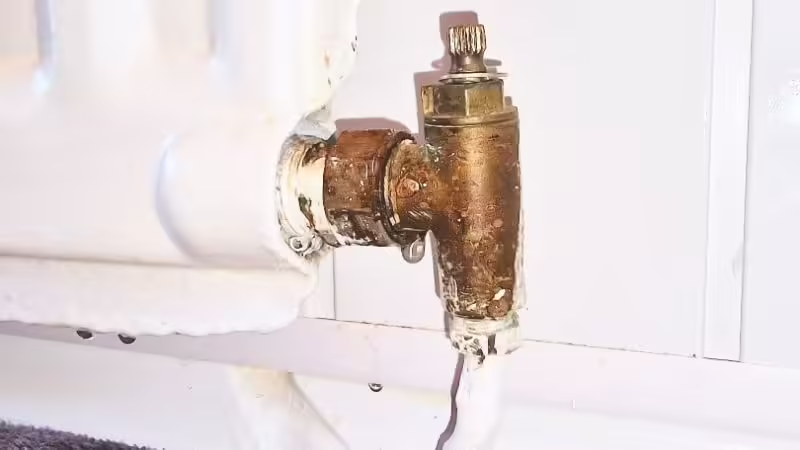
If the leak is not on a radiator, check under the boiler and any other heating pipes on show around the house. If you can’t find the leak, it could be under the floor. This means the floor will have to come up, or, you can try adding some leak sealer to the system if it’s a small leak.
Expansion vessel
A pressurised central heating system needs an expansion vessel to take the expansion of the hot water when the heating is turned on. If your pressure is dropping with no leaks, a faulty expansion vessel is the most likely cause. These are either inside the boiler or could be in the hot water cylinder cupboard if you have one.
The expansion vessel should be full of air, so when the heating is on it takes some of the pressure increase away from the radiators and pipes. If it loses air (quite common), your boiler pressure will rise too high when you turn the heating on, causing it to reach over 3 bar. This will cause the pressure relief valve safety device to release all the water (pressure) outside and take your pressure gauge to 0.
To fix this problem, you need to recharge your expansion vessel by pumping it up with a pump. If that doesn’t work and the diaphragm inside the vessel is split, you will have to replace the expansion vessel.
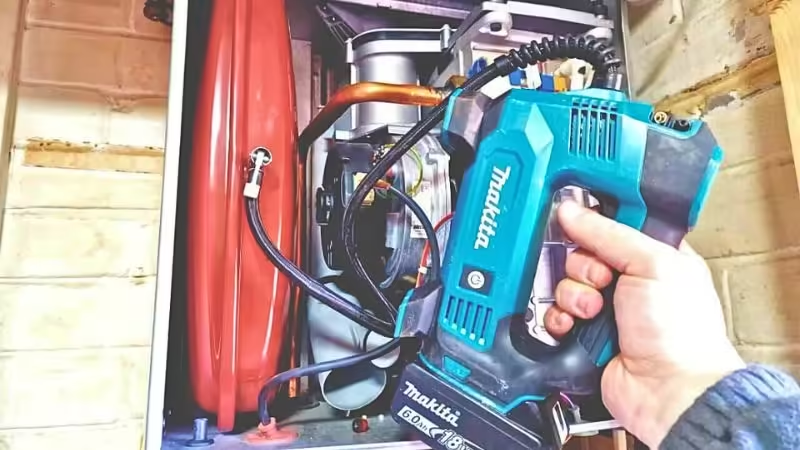
Pressure relief valve passing
All pressurised heating systems must have a safety device called a pressure relief valve (PRV). A PRV protects your system from building up too much pressure and causing a radiator or boiler to blow up. PRVs can leak because they get little bits of debris or dirt stuck in them when they open to release the high pressure.
Slow Pressure Drop? If your boiler pressure keeps dropping slowly and it’s not rising to 3 bar first, you should check your copper blow-off (overflow) pipe outside for dripping water. If it’s dripping, you will need to replace the pressure relief valve. Make sure the pressure is not rising before replacing it because the new PRV will leak if something is causing the pressure to rise.
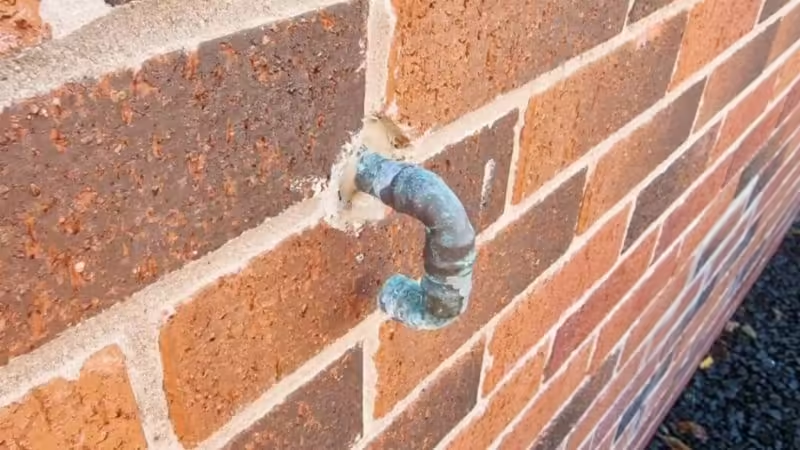
Filling loop letting by
Another reason for losing pressure could be your filling loop being slightly open or broken. This will cause the pressure to rise to 3 bar and the PRV to blow the system water outside. Sometimes the valves on the filling loop are not closed properly after topping the pressure up, and sometimes the valve just doesn’t close fully anymore because of dirt or damage and the filling loop valve needs to be replaced.
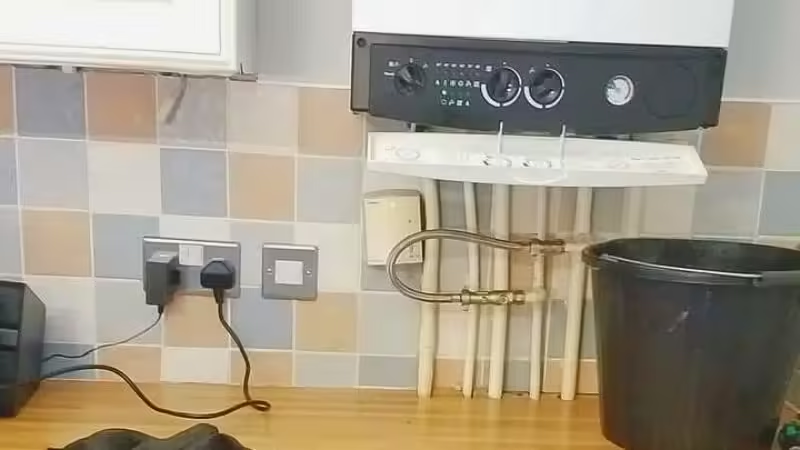
Pressure rising first
If your boiler pressure is rising to 3 bar this is most often caused by your expansion vessel not doing its job. It could also be caused by the filling loop constantly letting water into the heating system, but this is less common. When your pressure rises to 3 bar the PRV will let the water and pressure out of your heating system. The PRV sometimes will not close fully after being used, so after fixing the pressure rising problem, you might have to replace the PRV also.
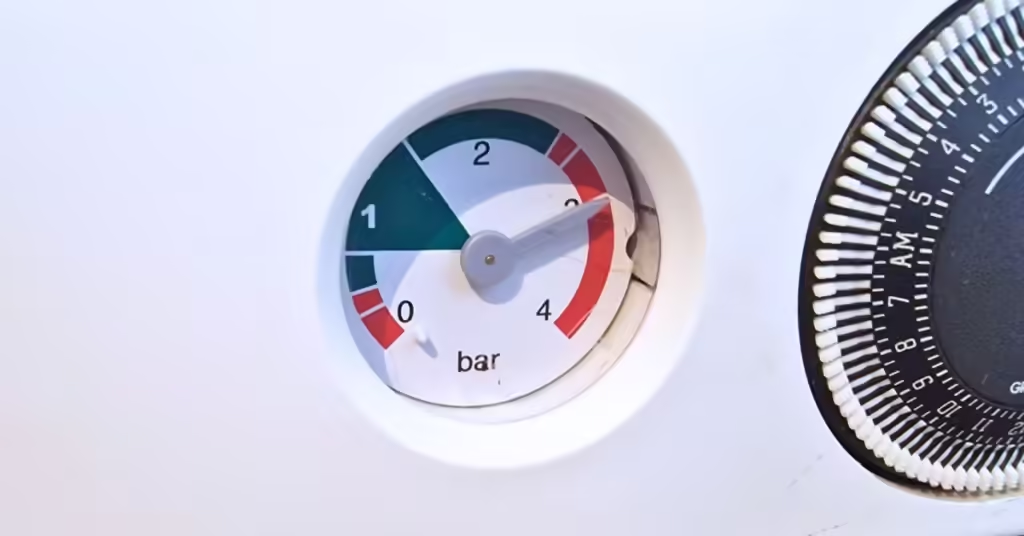
Conclusion
If your boiler loses pressure constantly, finding out the cause is the first step to fixing it. If there is no sign of water coming out of the copper pipe outside, it is most likely a leak. If the pressure is rising to 3 bar when the heating is turned on, it’s the expansion vessel.
Have any questions? Drop them in the comments below, I’ll do my best to help! If you found this post helpful, don’t forget to share it with others who might benefit.
FAQs
Can a dripping tap cause boiler pressure to drop?
No, a dripping tap can not cause boiler pressure to drop. A tap is not connected to your central heating system, so a kitchen or bathroom tap dripping cannot affect your boiler pressure.
How often should a boiler lose pressure?
A boiler should never lose pressure unless there is a problem. If your central heating is losing pressure, you might have a leak on the heating system. If it loses pressure once or twice a year, I wouldn’t worry about it.
Is low boiler pressure dangerous?
No, low boiler pressure is not dangerous. If your boiler pressure is too low the boiler will not work, but it will not make it dangerous. You should repressurise the boiler if you have low pressure to stop it from breaking down.
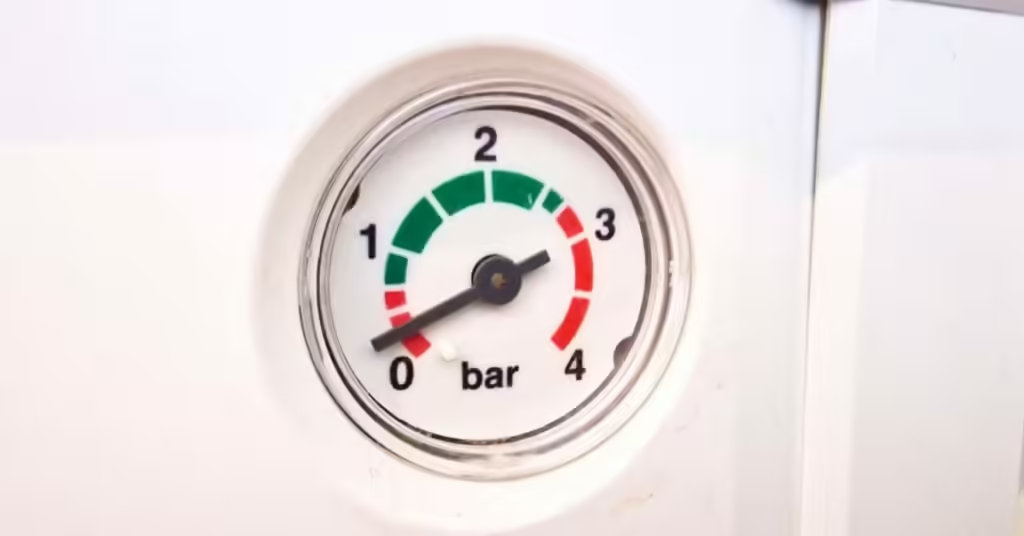

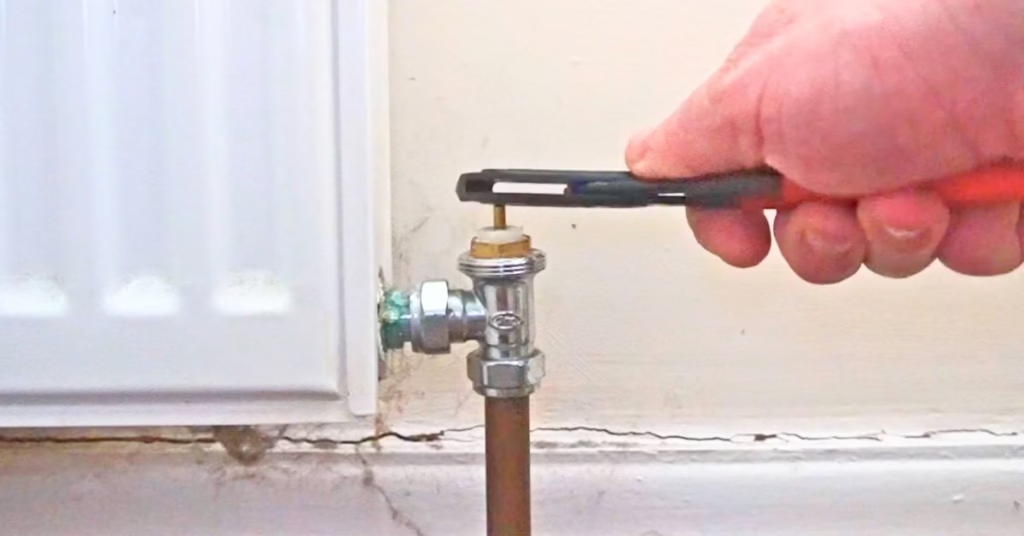
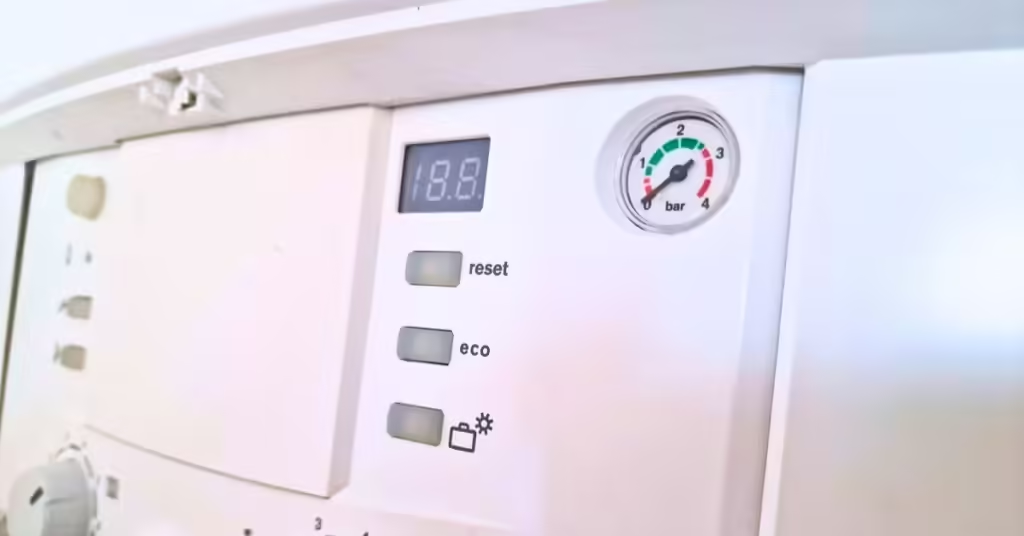
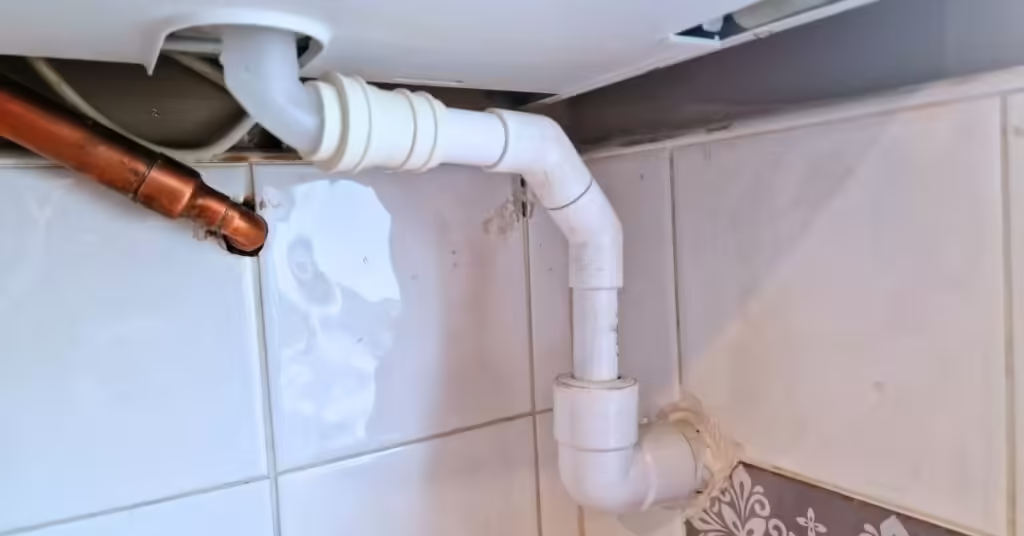
hi
the pressure on my system is dropping to zero over 3 hours, there are no visible leaks anywhere.( I inspected below all th upstairs floors) this has been going on fpr almost 4 weeks and there are no signs of water damage internall or externally. we have isolated the downstairs rads and it still drops. We have relaced the heat exchanger and it still drops. there is no sign of water being expelled from the PRV. If we isolate the CH it holds, but as soon as we open the isolation valves it drops to zero in seconds. Could it be finding its way back into the emersion tank (Glenhill) with no visible signs of a leak ?
Hi Steven
Our Boiler’s pressure doesn’t rise to three. It drops to 1 in winter when we use heater and when we use the filling loop we can hear the water rushing but that sound stops as soon as the pressure gauge needle reaches two. We have one heater which has got problem with valve as the heater warms up even when it is off. Could this be problem. Don’t have any leak. Pls advise.
Hi, my boiler is now losing pressure daily. I keep it topped up to 1 bar and it works perfectly but then loses pressure again in a day or two. There is sometimes water dripping from under the boiler from the righthand side. I can feel it dripping onto my hand from the right hand tap when I re pressurise it. It’s a Glow worm ultra com 30 cxi. I would be grateful for.any advice. I do have some plumbing skills but don’t know too much about boilers. Many thanks.
Check if it’s rising to 3 bar when the heating is on before dropping. Also check the copper pipe outside for any signs of water next time the pressure drops.
Hi Steven, my boilers pressure drops to zero every time the heating is off, it retains the pressure when heating in on.
If I turn the heating system of at the boiler and just keep the hot water system on the pressure remains up all the time.
Have you any suggestions you can offer.
What happens when you repressurise it when it’s off?
Hello Steven I also forgot to ask if low pressure or even a gas leak, can cause gas bills to be high?
Hi Pamela, yes a gas leak could cause your gas bill to be high.